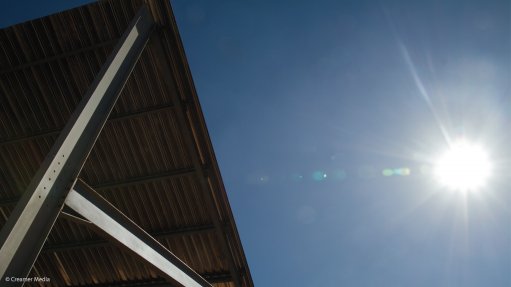
Photo by: Duane Daws
The South African International Renewable Energy Conference (Sairec) has wrapped up with a declaration to upscale and mainstream renewable energy globally.
Delegates also pledged to make universal access to electricity a reality by 2030, with more than 1.3-billion people, including 621-million people in sub-Saharan Africa, still without any form of electricity.
Outlining the declaration, Global Forum for Sustainable Energy president Dr Irene Giner-Reichi said countries needed to work on technology and capacity building and had to prioritise renewable energy.
Skills transfer and development were key, while securing financial resources was also vital. She said the importance of regulatory frameworks should not be underestimated.
Countries were also urged to work together to achieve renewable-energy targets. A start had already been made through various initiatives including Electrifi, the Clean Energy Corridor Initiatives and the African Renewable Energy Initiative.
Countries were now gearing up for the upcoming Conference of Parties 21, in Paris, where reducing greenhouse gases and developing low-carbon policies were going to be key.
South Africa had committed to a new global treaty on climate change. Upscaling renewable energy with the goal of mitigating carbon dioxide emissions was expected to top the agenda.
“We can’t continue as if it is business as usual. Lack of energy is a major constraint in Africa. We have to look at the renewable-energy value chain and focus on the interconnectivity of the continent,” said Energy Minister Tina Joemat-Pettersson.
A number of commitments were made at Sairec. These included a commitment by South Africa to launch an Independent Power Producers (IPP) programme as an African initiative by 2020.
The Department of Energy’s IPP Office had received an overwhelming response to its call for bids for smaller renewable-energy projects in South Africa. Joemat-Pettersson announced that 49 MW had been set aside for selected small projects, including six solar projects, two onshore wind and two biomass projects. She also announced an additional 1 500 MW solar farm in the Northern Cape.
Sairec was attended by 3 600 delegates from 82 countries. Delegates were told how the recent uptake of renewable-energy technology had surpassed expectations, while investment in renewable energy had surpassed investment in fossil fuels over the past five years.
Participants had also considered goal seven of the recently announced Sustainable Development Goals. The goal of sustainable and modern energy for all had three targets – access, renewables and energy efficiency. The declaration said this would constitute a solid guiding framework for deliberations and future cooperation with a special focus on reenergising Africa.
Renewable Energy Policy Network for the Twenty-First Century executive secretary Christine Lins said South Africa had the capacity, capability and political will to become a world leader in renewable-energy technologies.